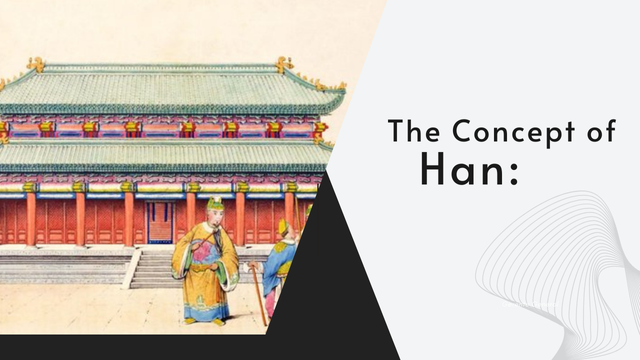The Concept of Han: A paper seeking to understand the culture and history of a place
The term ‘ Han ‘ has a different conno- tation in different societies and in different historical periods. They tend to be perceived with passion, memory, and self especially in the Eastern Asian region of the world. In this article, the author provides historical background of the term “Han,” analyzes its meaning and discuss practical implications of this term for individuals and communities with a focus on Koreans and Chinese.
Han Heritage and Cultural Importance
1.Han in Chinese Culture
Han, in the annals of Chinese history, mentions one of the mightiest of Chinese dynasties, namely, the Han Dynasty (206 BCE-220 CE). Han is indeed supposed to represent an epoch that has marked the golden age of Chinese civilization, which made immense contributions toward the evolution of culture, science, philosophy, and governmental contrivances in China. Several achievements made by the dynasty constitute the basic roots for much of what today is considered as traditional Chinese culture. Furthermore, this also was the period of the spread of Confucianism, development of technology such as the making of paper, and finally, the opening of the Silk Road.
The Han (汉族, Hànzú) is the largest ethnic constituent of China, and the Han Dynasty has left resentment in many forms towards the Chinese citizenry as a matter of living legacy. In this sense, then, “Han” is bound with citizenship and ethnic origin that stands far beyond the historical period ‘Han’ and embodies
2.Han korean culture
Korean Han, Korean Han Here, it has a far more emotional and psychological meaning. Han has often been described as a very complex emotion. It is a combination of grief, regret, and longing, usually related to either history or personal suffering. The idea of Han is rather one about deep sorrow and unresolved feelings of injustice, mostly attached to social or personal hardship.
Korea has always had a history of invasions, colonization, and wars, and the most painful times were during the early 20th century when the Japanese came in to occupy Korea. Han is that deep Korean sorrow, which has contributed to the psychological make-up of the Korean literature, music, and arts. It is often claimed that such a thing is not easy to communicate; rather, it is integrated into the innermost depth of the soul. Han has become a significant part of Korean identity and has featured in many traditional and contemporary works, from the tragic themes in Korean cinema to the hauntingly beautiful melodies of Korean folk music.
3.Han in Literature and Arts
The idea of Han as a closely acknowledged construct is now widely reflected in Korean literature, poetry, and drama. Indeed, that idea has transcended from mere emotions; hence, han has become the vital force that attempts to fashion Korean culture itself-one that symbolizes endurance of the human spirit taking on suffering. Classics such as The Tale of Chunhyang feature characters who suffer but carry within them some kind of Han, marking an ability to go on even in the face of painful realities in society. Modern-day film and drama and literature from Korea also had this subject, Han in their stories about people apparently wrestling between the personal grief and the torrents of history or with some type of despair of existence. With its popularity worldwide, so multiplies the audience that is now familiar with this emotion quite particular to the Korean people.
4.The Presence and Role Of Han In Music And Performing Arts
While Korean music, or gugak (traditional Korean music), has reflected Han, the theme remains imprinted in sorrowful and poignant melodies and lyrics reflected in Korean ballads (trot music) and folk songs. Even K-pop, with all its international scope, has succumbed to the Han theme of overcoming adversity-from its darkest ballads to its most enlightening anthems.
Conclusion
The term “Han” goes beyond any simplistic definitions: be it from the historical legacy of the Han Dynasty in China, the highly emotional and psychological state in Korea, or although not least, symbolic reference in modern media and art. It encompasses history, culture, identity, and emotion-and hence, provides a perspective into the complexities of human beings and the ways by which societies interpret their collective past and present.
ALSO READ THIS: Yoon: The Modern Man Across Culture and Identity in a Multifaceted Name
Yoon: The Modern Man Across Culture and Identity in a Multifaceted Name

